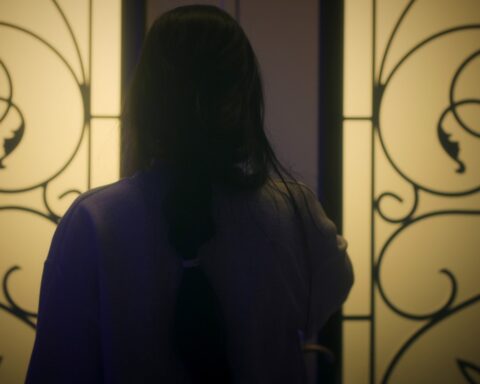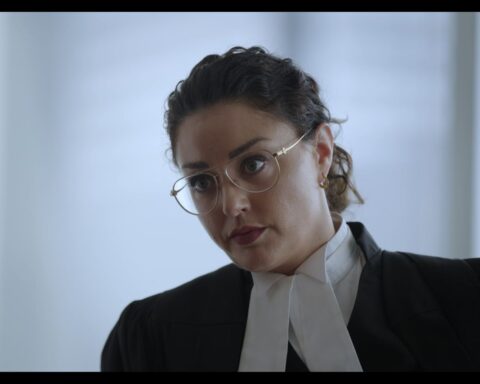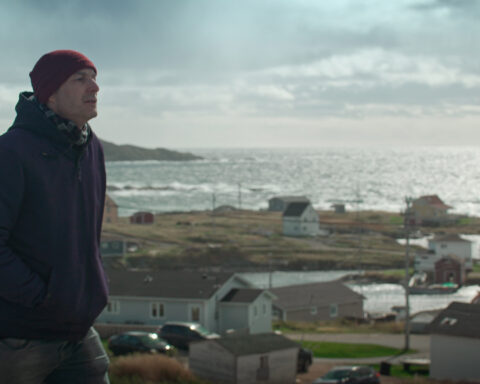My Father the Spy
(Latvia/Germany/Czech Republic/Estonia, 82 min.)
Dir. Gints Grube, Jaak Kilmi
Don’t even dare blink. My Father the Spy is a wild-but-true tale full of twists, turns, and unexpected revelations. The information comes quickly and doesn’t let up as Ieva Lešinska recounts growing up with a double life. Her story will startle audiences and surprise them as it takes them on a rapid-fire adventure of international intrigue and espionage.
This film by Gints Grube and Jaak Kilmi invites Lešinska to revisit her past in new interviews and sequences that place her in contact with the secrets and lies of her family’s past. The Latvian Lešinska explains how her father, Imants, worked for the KGB and enjoyed a post as a Soviet translator at the United Nations. Her recollections combine with snippets of archival footage to create an impression of a relatively normal life. She was a young woman straddling two worlds during the Cold War.
Cut to 1978 and Ieva, a student, is in New York visiting her father while her mother is back home in Latvia. Ieva’s father offers her a chilling bit of news and an ultimatum: he is actually spying for the Americans, plans to defect, and wants her to stay with him. The choice is hers: go to the Soviet embassy, denounce him as a traitor, and return home or stay with him, sever all ties to her life back in Latvia, and enjoy the privileges of studying in the USA. She chooses to stay and the decision haunts her while ensnaring her in a world that leaves her looking over her shoulder to this day.
My Father the Spy is an engrossing docu-thriller that fuses the personal and the political to create an enigmatic tale of Cold War espionage. The sheer volume of information can be disorienting, as it doubtlessly was for Ieva, and leaves one watching with uncertainty as the story unfolds. There are obvious risks taken in the stories told by Ieva and the interviewees. The film features accounts of people bumped off and taken out as part of the Soviet/USA spy game, but there’s an undeniably giddy thrill to be found in the language used by the players in Ieva’s story. Euphemisms, slips of the tongue, and corrections to testimony speak volumes about the many secrets hidden away.
Such a tale may inevitably become an act of “telling” rather than “showing” as the film favours the act of storytelling through interviews and personal accounts. Although Ieva offers an unexpected amount of archival material documenting her family’s life, Grube and Kilmi compensate of the inevitable holes in visual material by supplementing and complementing the archival material with re-enactments. An overemphasis on freeze frames in the re-enactments sometimes betrays the absence of material, but the film also uses the interplay between drama and documentary to put audiences in Ieva’s headspace. What sense of reality could this young girl have had while growing up in a world that seemed too wild, too dangerous, and fantastical to be true?
My Father the Spy screens at Hot Docs Ted Rogers Cinema as part of the Doc Soup series on Nov. 13 and 14.











